The following video series introduces and explores the work of the Asia–Africa BlueTech Superhighway (AABS) project, as told by project participants and partners. The videos share how AABS is working to overcome some of the challenges facing aquatic food systems in project implementation countries. They also highlight the important areas of work that aim to transform the livelihoods of coastal communities across Asia and Africa, particularly for women and youth, and help restore marine and coastal ecosystems by developing sustainable and resilient aquatic food systems. Finally, a set of films from November 2024 capture highlights from a series of events in Kenya and Zanzibar.
Climate-Smart Technologies
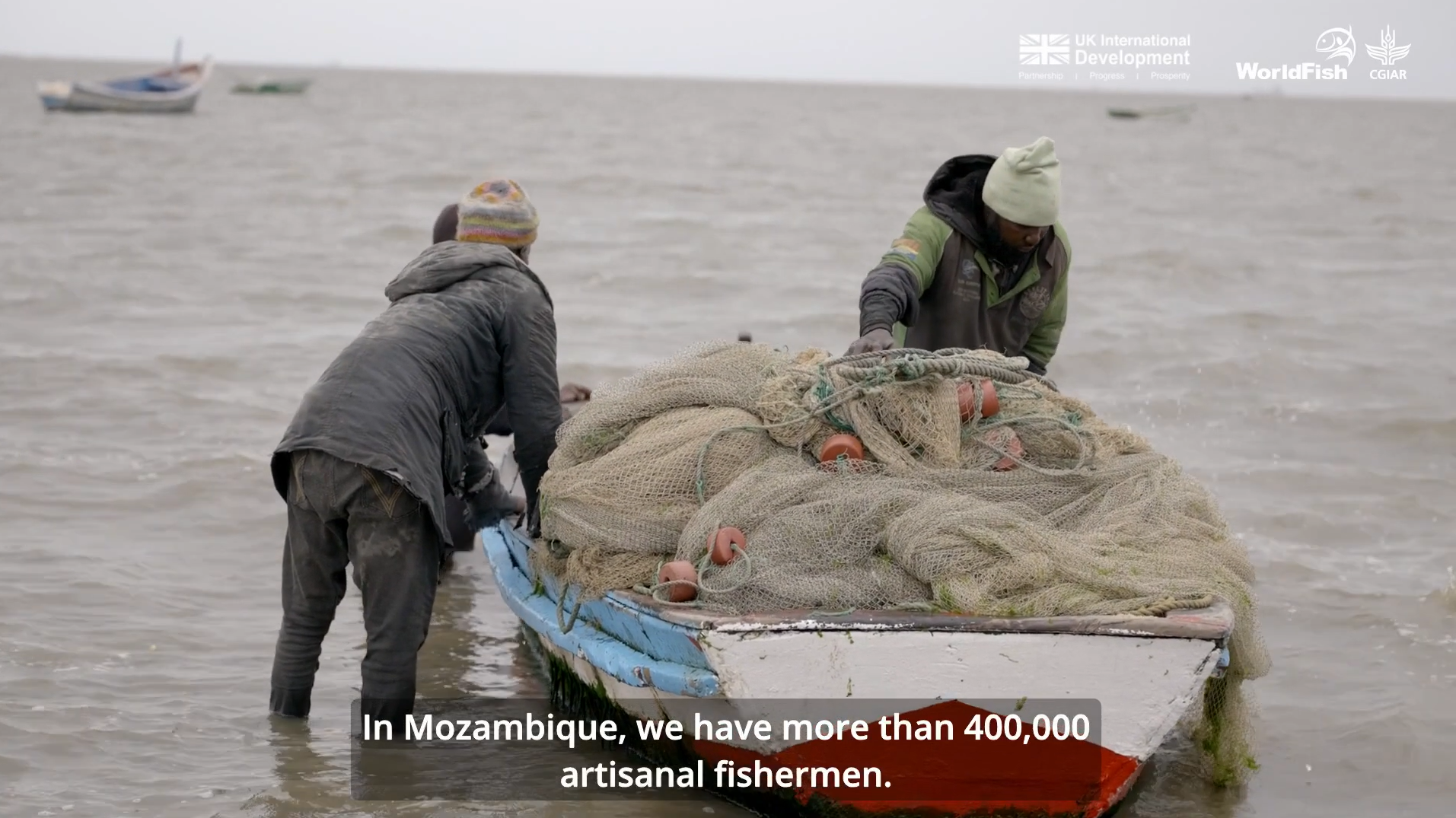
Resilient Coastal Fisheries in Mozambique
The Asia–Africa BlueTech Superhighway (AABS) supports the transformation of small-scale fisheries through a digital, climate-smart technologies and strategic partnership in Mozambique . By strengthening fisheries data systems, reducing post-harvest losses, and promoting sustainable practices, AABS enables more resilient, inclusive, and sustainable aquatic food systems.
Watch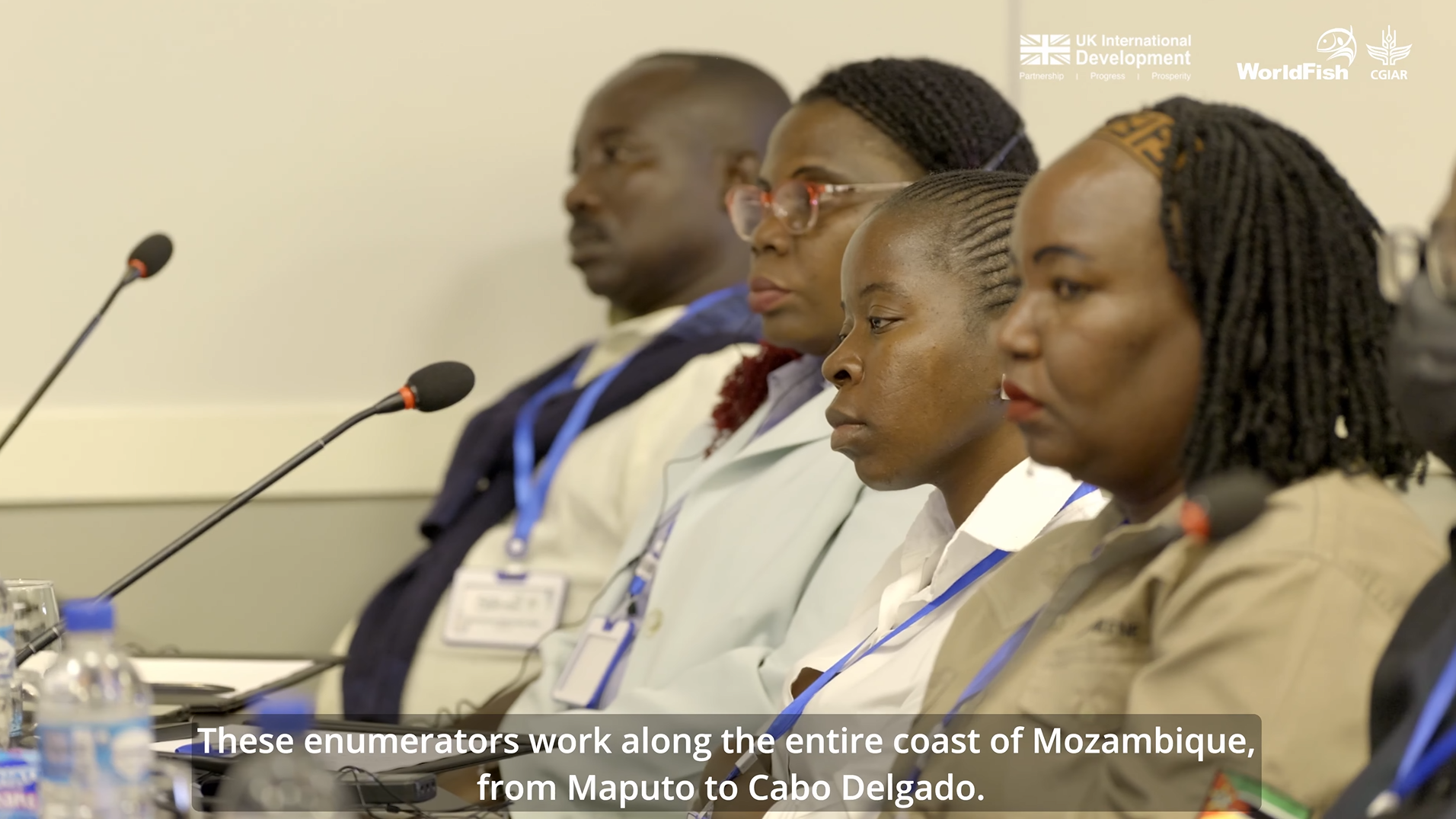
Capacity-building for fisheries enumerators in Mozambique
Asia–Africa BlueTech Superhighway (AABS) in collaboration with national partners is enhancing fisheries management in Mozambique by training coastal fisheries enumerators to improve data collection, transitioning from traditional methods to digital data collection, monitoring, and reporting using the Peskas system thereby strengthening data quality, oversight, and decision-making across all provinces.
WatchGender-Inclusive Coastal Livelihoods
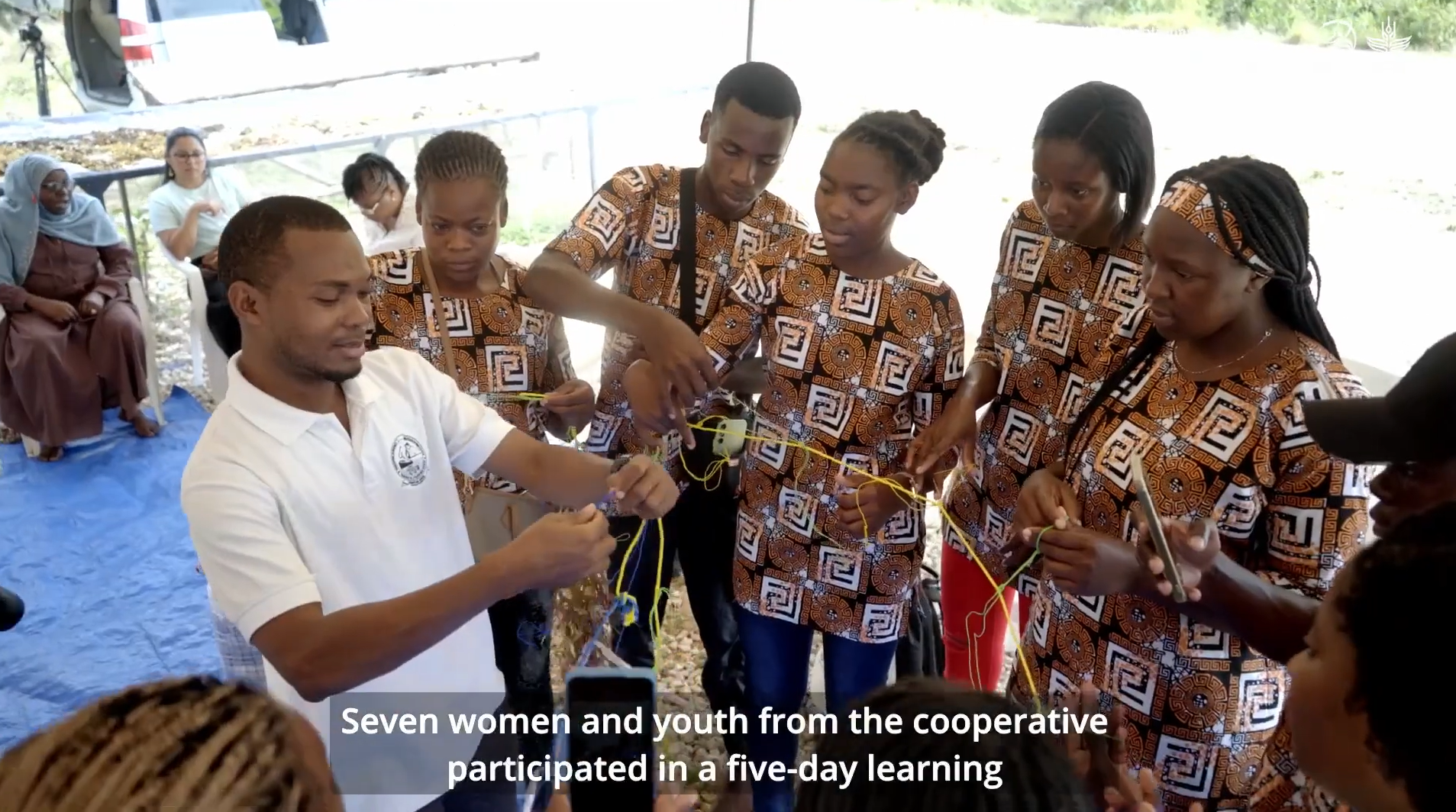
Learning visit builds capacity and supports future growth of Mozambique seaweed cooperatives
Members from Tany Cooperative from Inhaca Island, Mozambique enhanced their skills and knowledge in seaweed processing, value addition, and cooperative management during a South–South learning visit to Zanzibar, Tanzania, The exchange strengthened capacity and created opportunities for women and youth to expand livelihoods, build resilient coastal enterprises, and develop sustainable seaweed value chains.
Watch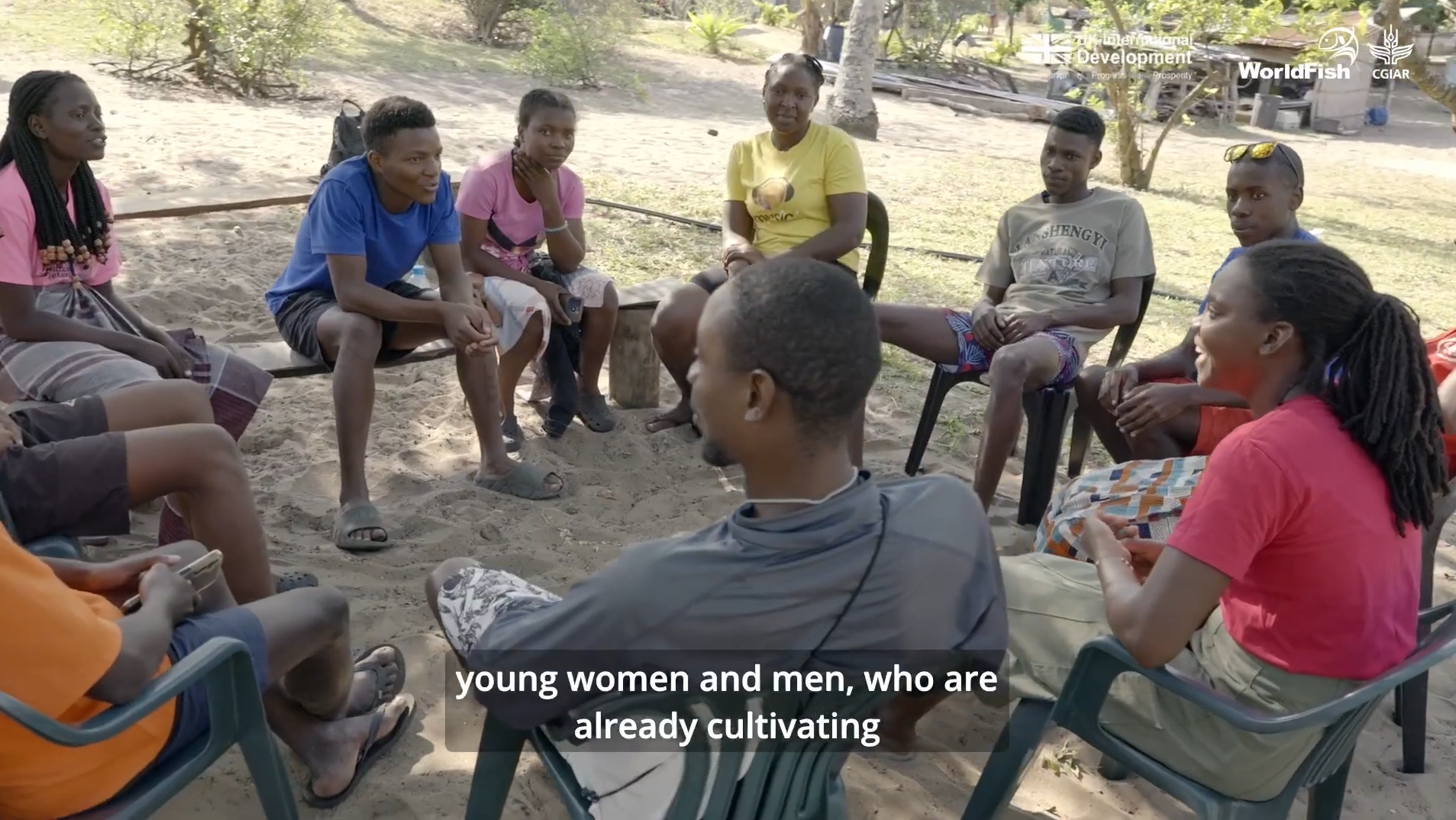
Turning learning into practice: Tany Cooperative strengthens livelihoods on Inhaca Island
Following their learning visit to Zanzibar, members of the Tany Cooperative on Inhaca Island, Mozambique are applying new skills in seaweed processing, product development, and cooperative management. By implementing these practices at home, women and youth are improving product quality, exploring new income opportunities, and strengthening cooperative organization, advancing gender-inclusive and resilient coastal livelihoods.
WatchIntroducing AABS and South–South collaboration
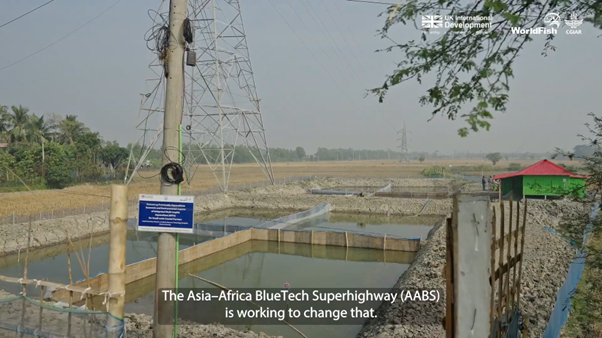
Transforming aquatic food systems
Across Africa and Asia, small-scale fisheries and aquaculture are the backbone of coastal communities, but challenges like overfishing, climate change and inefficient fish processing threaten livelihoods and food security. AABS is working to change that.
Watch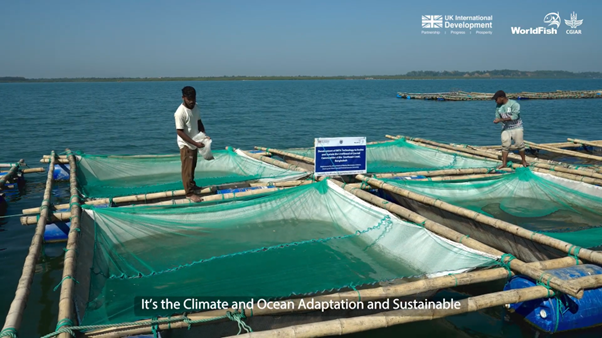
Reversing climate change and overexploitation impacts in aquatic food systems
Aquatic food systems are a vital natural resource for hundreds of millions of people, but climate change and overexploitation are threatening food security and livelihoods across the Global South. AABS is working to protect coastal habitats, improve small-scale fisheries, develop sustainable aquaculture and strengthen coastal planning.
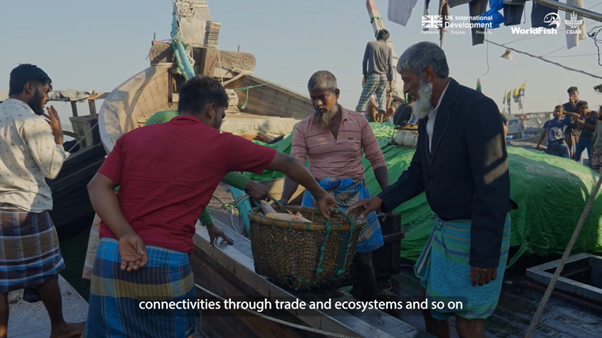
Leveraging South–South collaboration to deliver a triple win for nature, people and climate
AABS embodies the main principle of South–South collaboration. It is a multi-country initiative—operating across Bangladesh, Kenya, Mozambique, Nigeria and Tanzania—that brings together numerous stakeholders, transforming fisheries and aquaculture through innovation, technology, partnerships and knowledge exchange.
WatchScaling aquatic food systems solutions in target countries
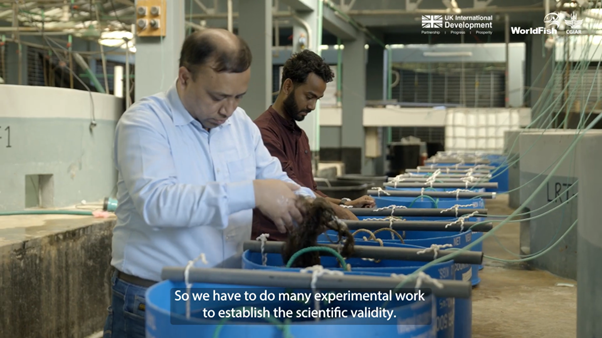
Addressing challenges and building climate resilience in Bangladesh’s aquatic food systems
The intense and ongoing impacts of climate change in Bangladesh, such as rising sea levels, degrading coasts and disastrous weather are threatening the country’s vital fisheries and aquaculture sector. AABS is supporting Bangladesh to address aquatic food systems challenges by leveraging South–South collaboration to improve sustainability, resilience and prosperity in coastal communities.
Watch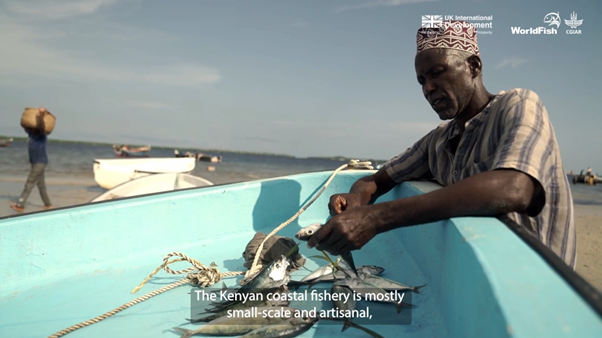
Creating sustainable and resilient artisanal fisheries in Kenya
Fish production in Kenya has long been led by inland fisheries, but its lakes and rivers have reached their limits of sustainable capture—this presents a golden opportunity for small-scale coastal producers. AABS is supporting Kenya to find solutions to fisheries and aquaculture challenges by leveraging South–South collaboration to improve sustainability, resilience and prosperity in coastal communities.
Watch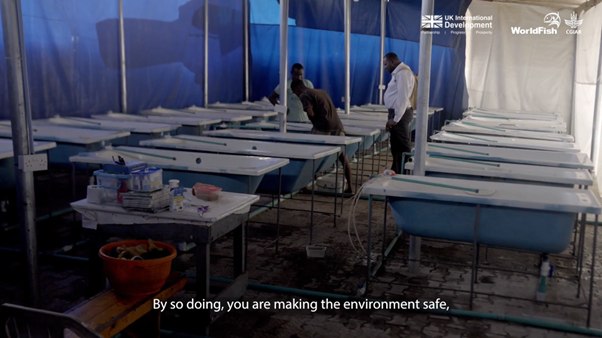
Improving diversity and prosperity in Nigeria’s fisheries and aquaculture
In Nigeria, a lack of species diversity in fish production and the underutilization of marine aquaculture means the aquatic food system isn’t working to its full potential. AABS is supporting Nigeria to address its fisheries and aquaculture challenges by leveraging South–South collaboration to improve sustainability, resilience and prosperity in coastal communities.
Watch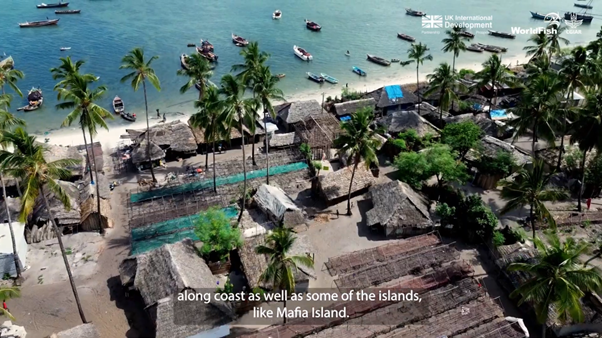
Creating climate-resilient and sustainable aquatic food systems in Tanzania
With 1,242 km of coastline and vast water bodies, aquatic food systems are essential for sustainable and climate-resilient sources of food, nutrition and employment in Tanzania. However, the aquatic foods sector is impeded by a lack of data needed for policymaking and limited access to knowledge and technology. AABS is supporting Tanzania to address its fisheries and aquaculture challenges by leveraging South–South collaboration to improve sustainability, resilience and prosperity in coastal communities.
Watch2024 knowledge exchange events in Kenya and Zanzibar
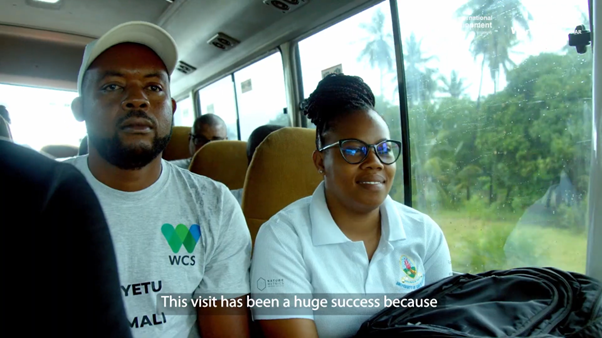
South–South Knowledge Exchange Visit: Zanzibar to Kenya 2024
An important aspect of AABS is enabling peer-to-peer learning across Africa and Asia. Enhanced collaboration offers immense potential to achieve a sustainable blue economy. In November 2024, a Zanzibar delegation travelled to Kenya to learn and exchange ideas.
Watch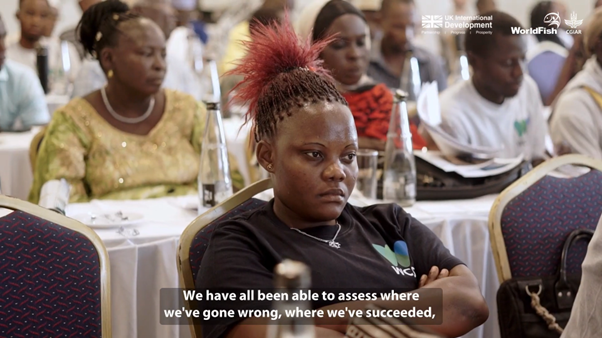
Kenya Annual Fishers’ Forum 2024
AABS participated in the Kenya Annual Fishers’ Forum 2024, where fishers, managers and communities came together to discuss key challenges, successes and innovations in restoring the sustainability of fisheries.
Watch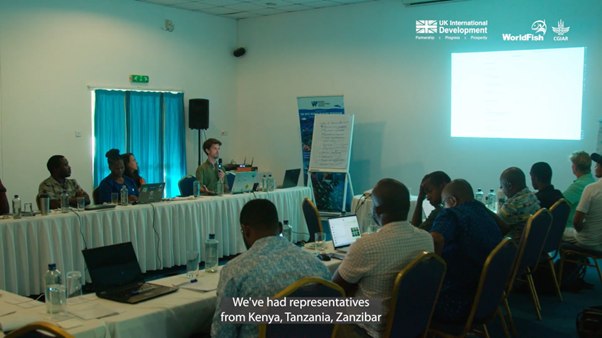
Data Harmonization Meeting, Kenya 2024
AABS participated in a Data Harmonization Meeting in Kenya in 2024. The event brought together AABS partners, fish workers, government institutions and NGOs to discuss areas of interest where stakeholders could come together to harmonize resources and find ways in which data could help manage those resources.
Watch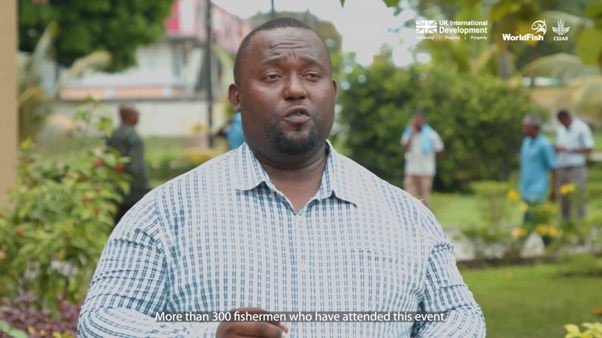
Zanzibar’s World Fisheries Day 2024
AABS participated in a World Fisheries Day event in Zanzibar, alongside more than 300 fishers, development stakeholders and government officials, in recognition of the significant contribution of fisheries to the national economy.
Watch
Leveraging South–South collaboration to deliver a triple win for nature, people and climate
AABS embodies the main principle of South–South collaboration. It is a multi-country initiative—operating across Bangladesh, Kenya, Mozambique, Nigeria and Tanzania—that brings together numerous stakeholders, transforming fisheries and aquaculture through innovation, technology, partnerships and knowledge exchange.
Watch